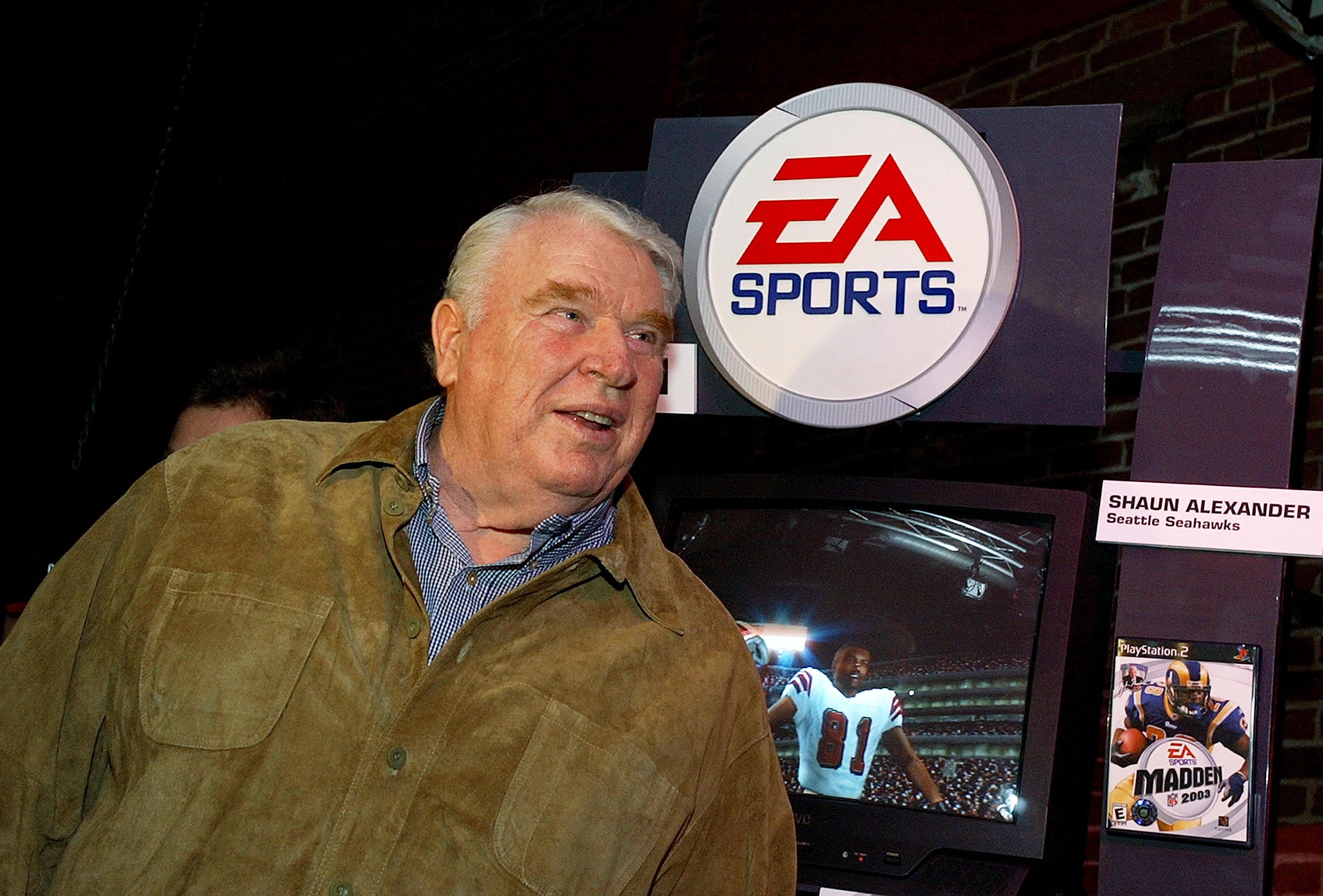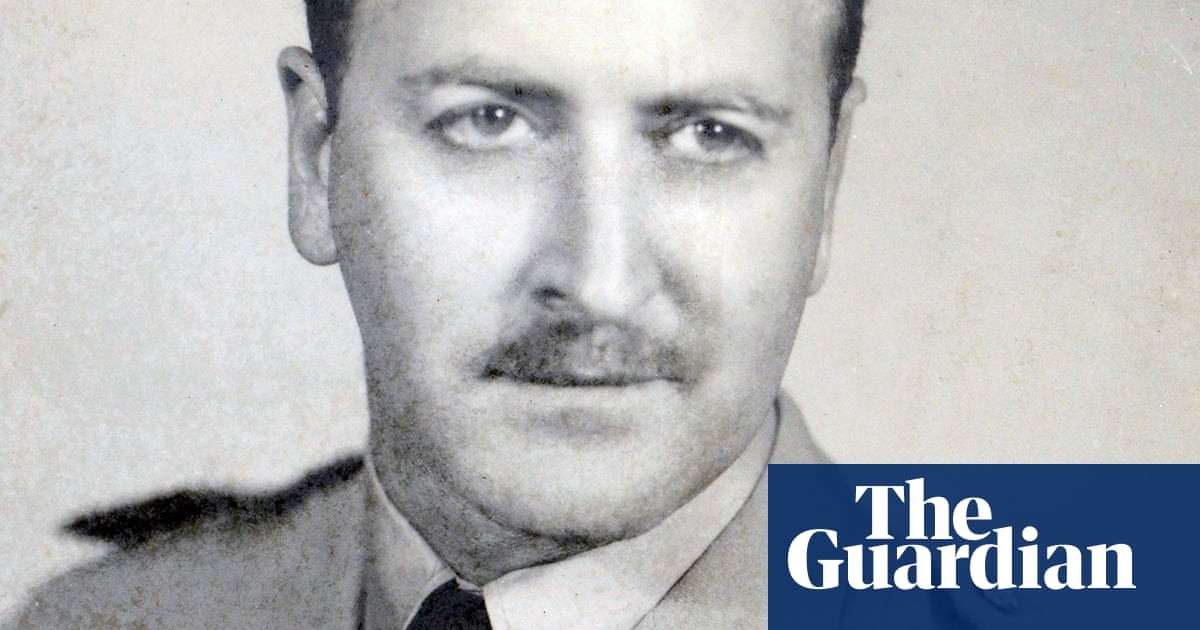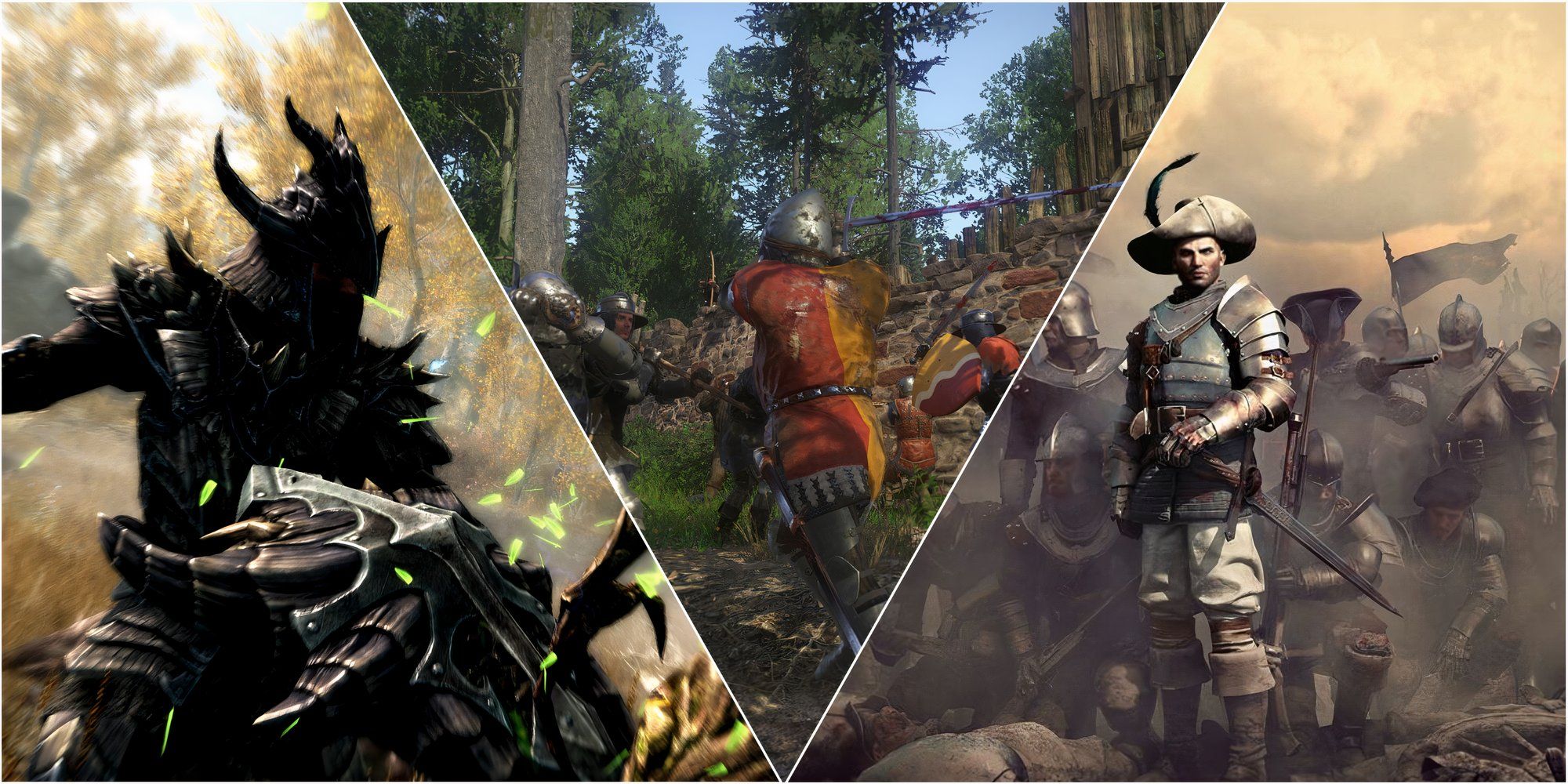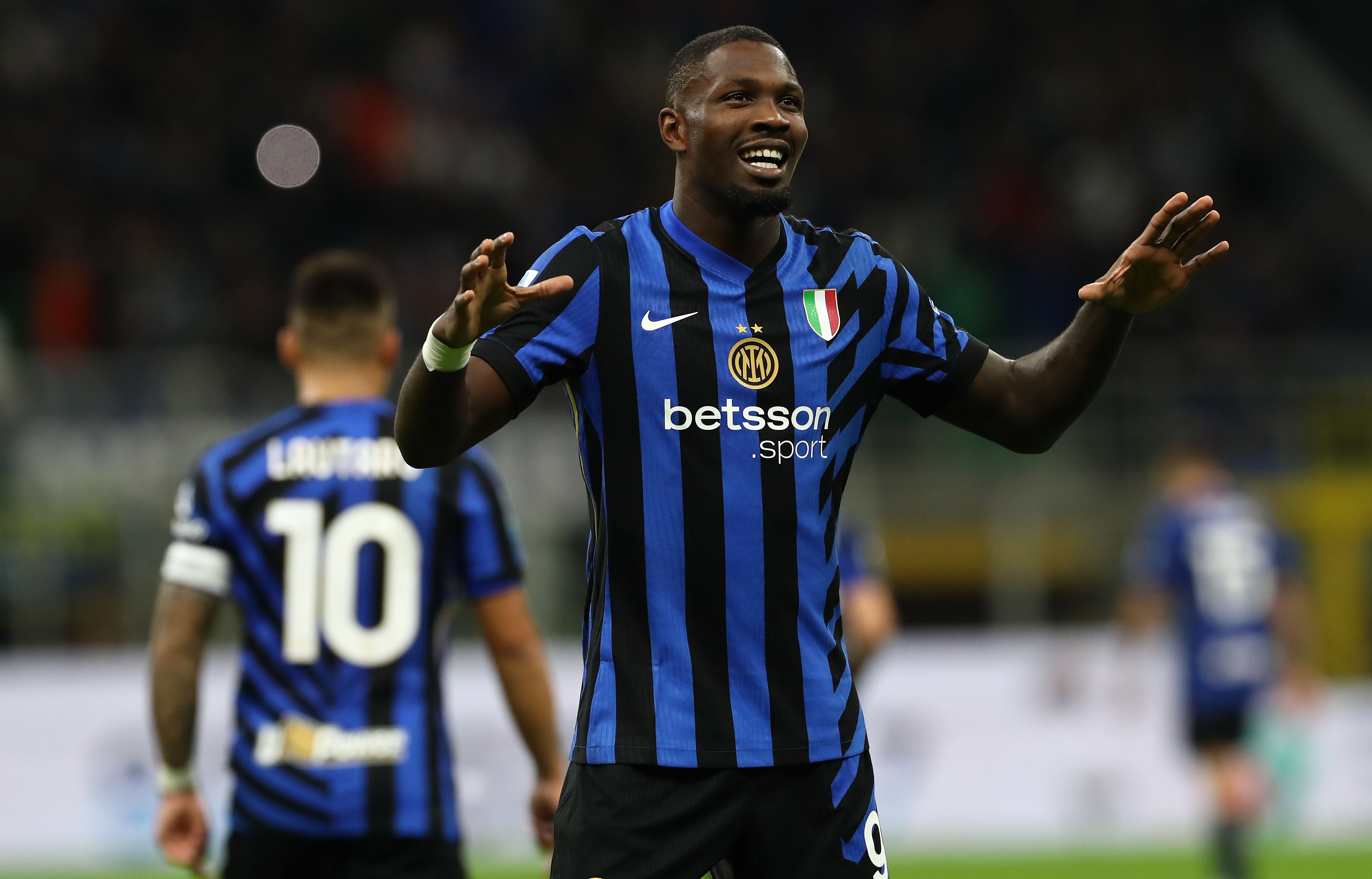Sports
EA Sports VP talks Madden ratings, annual pressure and late coach’s legacy

In the world of sports, certain names speak for themselves. Madden is one of those.
John Madden, of course, first found fame as a Super Bowl-winning NFL coach, winning an incredible 75 percent of his regular-season games with the Raiders while capturing an AFL championship and a Super Bowl crown. He then moved into the broadcast booth, where his legend only grew. Thanks to his use of the telestrator, his signature interjections and his clear love of the game, Madden became a key part of every NFL fan’s game day.
But there’s an entire generation of fans who know the late legend in a different capacity. He left the sidelines after the 1987 season and hung up the microphone in 2009. If you missed either of those cutoffs, there’s a chance you know Madden only from his status as the namesake of the annual NFL video game.
And that iconic collaboration will get a moment in the sun through Prime Video’s It’s in the Game: Madden NFL. The docuseries charts the game’s rise from an 8-bit idea to the cultural presence it is today.
And to make things even more fitting, the series released just before Thanksgiving, a day that’s synonymous with football and, more recently, Madden. Ever since the coach’s death on December 28, 2021, at age 85, the NFL has used the holiday showcase to honor the Pro Football Hall of Famer.
With all of that in mind, Newsweek caught up with Daryl Holt, SVP and Group GM at EA Sports, the company behind the iconic game, to chat about the docuseries, Madden himself and the pressure of producing an annual product that carries such a legendary name.
Dimitrios Kambouris/WireImage
Newsweek: So, Daryl, I guess with you, we could start from the top of things with It’s in the Game.
Is there something specific that you’re hoping the viewers take away from this behind-the-scenes story of Madden? Or just that it’s more than a video game that appears on the shelf, appears in your downloads, wherever you get it these days.
Daryl Holt: I think there’s a number of things, Joe. Part of it is understanding who coach Madden was for those people that really didn’t grow up with them or get to see him either as a coach or as a broadcaster, and they just know a video game named Madden.
You know, he’s the spark for it, the authenticity torch that we still carry to this day. And so, we want to make sure people know that and understand…what he did to the sport and how he shaped this game.
And then there’s the aspect, yes, of how cultural Madden has become in the sport of football for the players, for the fans, for video game fans that maybe learned football by picking up a controller and playing Madden.
All those things kind of converge around this game. That’s kind of amazing. And it’s kind of a celebration moment, historical look back and understanding of what it takes to make the game today. All those things kind of circle around each other as the orbit of Coach Madden and his larger-than-life influence on the game.
NW: And obviously on the main man himself. Like you said, you can’t avoid it, especially a week before Thanksgiving. Could you just explain a little bit how Madden’s influence, his legacy, permeates all the things you guys do.
DH: Yeah, I think it starts with, if you go all the way back, and as the documentary will show, when we peel back the curtain and show some footage that we’ve never shown before, Coach was there challenging us from the start. He loved the game. He loved to teach the game, but it had to be authentic. And if it wasn’t authentic, number one, his name’s not going on [it]. Everyone wants nothing to do with it.
And so that challenge permeates to us today.
We feel like we’re just passing this torch as creators on to say that’s the legacy that we have to, you know, deliver to make sure we’re trying to chase this as authentic simulation as possible as we [can] make it. And maybe that never ends, but we keep that chase going.
So, I think that’s a big part of it, is what the challenge that he kind of laid before us and then how that challenge kind of translates into an annual delivery of the game and keeping our players happy and keeping the NFL players engaged and happy because they’re a big part of the experience. And they’ve kind of grown up playing Madden and watching Madden themselves, the athletes of today.
So, ratings always become an interesting touch point and conversations around the game and around the sport. We feel like we’re that 33rd NFL team to a certain extent, that has responsibility to the league and the game and to people like Coach.
NW: You kind of just touched on this, but I know such a big part of sports is dealing with pressure. And for you guys internally, do you ever just have that…moment like “This is Madden. We can’t drop the ball. We’ve got to nail it year after year after year?”
Just what’s that like to work with?
DH: Absolutely. That is there every year.
And you know, we’re huge football fans ourselves. I am a huge Miami Dolphins fan. I’ve been watching football since I was born. I probably had baby diapers and bibs with the Dolphins logo on them.
And so, we have a responsibility and a love of that sport, but responsibility to deliver this game every year and make sure it’s there with the experience, it’s going to resonate with our players and, and respect the league and, and the authenticity we’re trying to develop.
So, it is a high-pressure type of situation. I think you’ll see that in some of the documentary of how we make the game, and how some things pop up like new kickoff rules really late in the cycle that add to that pressure.
But it’s also a labor of love for us. And it’s something we love to do. And yes, the pressure’s there, but it’s also a pressure that keeps us moving forward and keeps us thinking about what’s next.
And as a game maker, I like that.
NW: And then in a similar vein, I guess, in regard to pressures or potential challenges or whatever you might want to call it, sports games are sort of unique insofar as they’re coming out year after year. And there’s always that comparison to the year before.
I know there can sometimes be the sort of sentiment that, “oh, it’s just copy [and] paste,” “oh, it’s the same game with a few different names they put in it, blah, blah, blah.”
So, yeah, just from your side of things, having an annual product that there’s always that comparison, is it easier to deal with because you always have that foundation to build on? Or is it harder because you’re always looking at the year before and there’s that direct comparison of what you did 10 months ago or whatever [the timeframe] actually is?
DH: Yeah, it’s both.
And I think, you know, it’s just [an] interesting touch point that you bring it up there, Joe, because all the feedback is a gift to us, even when it’s critical and someone goes, “Hey, I don’t know that I see XYZ, you know, difference.” But just as the sport itself doesn’t necessarily change every year, there’s aspects to the teams, the authenticity, you know, what happens with the athletic performance on the field. We’re trying to make sure we can match that. There’s still more depth, there’s more control for us to put in the hands of our players. And so, we keep adding to that so there’s maximum, you know, gamer control on both sides of the ball to play your position.
And then there’s an aspect of, well, how much customization can we put in the game? So the fantasy that is franchise mode for example, and how you want the league to play to live out your fantasy, how do we give you more control there? And then how do we add that control or different experience in the superstar career mode so you can live the life of a player, and what are the challenges and other things we put in as well as the visual.
So everything is changing in so many places, but sometimes it’s hard when you just compare one little piece against another piece. But the totality [of the] experience always gets better and always changes. And for us, it’s how do we make sure that we do that annually and then how do we invest in things that are going to take awhile to do from the technology perspective? And then how do we deal with the surprises that pop up along the way, like new kickoff rules.
So, there’s always something there, but having a sport that we are trying to replicate is both a blessing and a curse because everyone can look at it and go, “I’ve seen it in real life. So, does it look like it and play like that in the game?”
We’ve got that burden to bear versus if you’re in a fantasy world of dragons or science fiction or, you know, whatever else, there’s no point of reference other than your own imagination. We’re replicating reality. And I think that’s again, a legacy that Coach put in front of us as the ultimate challenge.
NW: And when you’re talking about trying to replicate reality, I guess the biggest place where that sort of comes up is in regard to the ratings. And I know they get a ton of attention every year. Everyone wants to see who’s where in the list and all that good stuff.
But I was just wondering how has the behind-the-scenes process in regards to the ratings evolved over the years? Since you’ve got the rise of analytics, the ability to update online during the season, which obviously you couldn’t always do….Is it easier because you have all that extra data and all that extra ability?
Or again, is it harder because fans are so plugged into stats these days, whether it’s through fantasy, through betting, through whatever that if you give somebody five points lower on their hands than you should have, everyone’s going to know.
DH: I think it’s a little of both in that case, because it is harder with the amount of data that we have to sift through and to use. And the fact that Madden has become, as the documentary will show, how cultural it is and, and how important it is to the players and how important their ratings are.
So, as you alluded to, back in the day, you put a rating in, it’s on a disk, it goes in a box, that’s it. Now we can edit it and update it throughout the year based on the athletic performance as it’s happening. You know, if we miss something, we can certainly, you know, correct that.
But for the most part, I think it’s a conversation around what does someone see in that moment and how things have changed. And that gives us a lot of different data to work through and a lot of different touch points with the players.
Not only do we have data coming in from sources and we continue to watch film, but as we send out our ratings adjusters to actually watch players, you know, on the field or interact with them or have conversations, all that works its way into the game. And I think that’s kind of cool from the standpoint of the speed of the changes, the complexity and the volume of the data, but also the cultural touchstone of the players and what’s important to them.
NW: And we can wrap it up on one that’s hopefully a little bit of extra fun.
But I know obviously the players care about the ratings, and we’ve all heard about guys who think they’re too low, guys who are complaining and say “I’ll have to show you guys next year,” whatever it is.
So, I was just wondering, do you have any favorite memories or stories or anything like that of somebody reaching out to you guys about a final ranking? And whether they’re happy about it, unhappy about it, trying to get something changed under the table, just any memories like that that stand out?
DH: Yeah, there are tons of them.
There’s always stories, always memories. You’ll see it, even some of the current interactions happening in the documentary.
But I do remember once at a Madden Bowl, two athletes arguing about their rating and wanting to go out and do a foot race right there in the city that we were in at the time. I won’t mention any names, but downtown, I will say our ratings were right after that. That race was fun.
But that’s just a facet, they’re so proud of their athletic capabilities and, and what they see and, and what they do. But we always say, “Whatever is proven on the field is what will make it in the game.” And so, I think they take that to heart, and they try to do that on every Sunday, Monday, Thursday and everything in between.










